FARMING DOES NOT HAVE TO BE BORING!
Why do you farm the way you do? If you are a farmer this is a legitimate question. If you are not a farmer, you should read on, because you will be astounded at the variety of things you can do with farming, that you have probably never thought about!
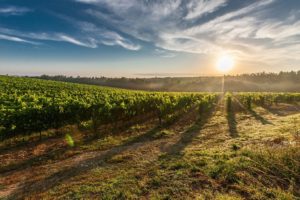 So back to my question! Why do you farm the way you do? Do you know how most farmers will answer that question? Like this – “I do it this way because my grandpa did, and my dad di and now I do it the same”. Really, I mean really!
So back to my question! Why do you farm the way you do? Do you know how most farmers will answer that question? Like this – “I do it this way because my grandpa did, and my dad di and now I do it the same”. Really, I mean really!
Yes, that is way most farmers, if they are honest would answer that question. How dumb is that?
You should be farming the way you do because of a lot of reasons, but not that one. Or, any answer that is that you are doing it the way you do because it is “convenient”, “what I inherited”, “because my folks want me to do it this way”. All bad answers! Really bad!
You should farm the way you do for any or all of the reasons below:
- I just know this way is making the planet better for my kids and generations to come.
- I can make great money doing this and still not destroy the land
- I love what I do!
- This is the best way to use this land to mimic what nature does.
But, you might say, what options do I have? Are there REALLY options for farming? Yes, there are, and here is a whole list of them you could think about. Check them out:
9 Conclusions and Recommendations | Toward Sustainable …
Source – www.nap.edu/read/12832/chapter/12
“Examples of Practices That Contribute to Sustainability
Production Practices
-
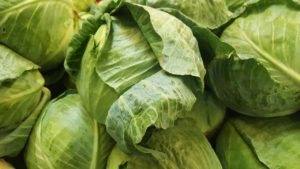 Conservation (or reduced) tillage systems have become common for many crops and soil types. As of 2004, 41 percent of planted crop acreage was managed with conservation tillage. Water-caused soil erosion and surface runoff of nutrients, chemicals, and crop residues have been greatly reduced. Although no-till leads to savings on fossil fuel and labor, it could result in lower yields and greater difficulty with weed control than conventional till. Thus, the economic effect of no-till versus conventional till is unclear.
Conservation (or reduced) tillage systems have become common for many crops and soil types. As of 2004, 41 percent of planted crop acreage was managed with conservation tillage. Water-caused soil erosion and surface runoff of nutrients, chemicals, and crop residues have been greatly reduced. Although no-till leads to savings on fossil fuel and labor, it could result in lower yields and greater difficulty with weed control than conventional till. Thus, the economic effect of no-till versus conventional till is unclear. -
Cover cropping provides ground cover to protect soil. Cover crops can also be used to provide other services, including maintenance of soil organic matter and provision of nutrients to subsequent crops (green manures), trapping excess nutrients in the soil profile following harvest of the primary crop, and preventing leaching losses (catch crops). However, cover crops are not widely planted because they require complex management skills and their seeding costs could be high.
-
Crop diversity, including rotations, intercropping, and using different genetic varieties can contribute to improving soil quality, enhancing ecosystem function, and managing pests and diseases. Although the use of diverse cropping systems has increased, it fluctuates widely with commodity prices. Diverse cropping systems require extensive knowledge and management skills to identify the right combination of crops to achieve multiple sustainability goals. Comparative economic studies reported economic advantages for diversified rotation in some cases and disadvantages in others. The variation in results is partly attributable to market and policy conditions.
-
Traditional plant breeding and modern genetic engineering techniques will continue to be used to develop crop varieties with increased yields, pest and disease resistance, enhanced water-use and nutrient-use efficiencies, and other important traits. Genetic engineering (GE) has the potential to contribute novel solutions for problems that could not be addressed with natural plant genetic resources or traditional plant breeding methods. New GE varieties would have to be tested rigorously and monitored carefully by objective third parties to ensure environmental, economic, and social acceptability and sustainability before release for planting.
-
Many technologies for efficient water use such as metering, improved distribution of high-pressure water, and low-pressure, directed-use systems offer promise to address water scarcity. Water reuse is another strategy for addressing water scarcity, but the biological and chemical quality of the reclaimed water would have to be monitored carefully.
-
Best management practices (BMPs), including nutrient management planning, field buffer strips, riparian area management, surface and subsurface drainage water management, and livestock manure management, have been developed to mitigate the runoff of agricultural nutrients and chemicals into the nation’s surface and ground waters. Effectiveness of BMPs at the watershed scale has been difficult to prove, in part because actions by individual farms might not be visible at the landscape scale. The benefits of BMPs can vary widely depending on characteristics of the landscape, weather events, and time lags between BMP adoption and physical changes in the dynamics of nutrient and chemical cycling on farm fields…..”
21 Food & Agriculture Investment Funds Launch in 2014
Source – https://foodtechconnect.com/2015/01/15/21-food-agriculture-focused-funds-launch-in-2014/
“Food-Focused Angel Funds
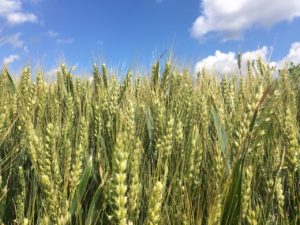 This group of accredited angel investors invests in early-stage food, beverage and food tech companies based in the US. Investments rage from $25,000-300,000 in the form of equity or debt and royalties in C-Corps or LLCs. Its investments include Wine by Design and iJukebox.
This group of accredited angel investors invests in early-stage food, beverage and food tech companies based in the US. Investments rage from $25,000-300,000 in the form of equity or debt and royalties in C-Corps or LLCs. Its investments include Wine by Design and iJukebox.
SlowMoney NYC’s network of angel investors funds local food businesses that are aligned with its principles. The network offers entrepreneurs the opportunity to borrow money from their neighbors, customers, and others interested in helping them succeed. Its investments include Blue Marble Ice Cream.
US Food & Agriculture Investment Funds
This $50 million venture capital fund wants to transform our food system by supporting technology innovation from field to plate. It invests in early-stage, North American agriculture and life science startups that increase productivity and sustainability, as well as modernize distribution chains. It plans to invest $250,000 to $500,000 in initial seed rounds, with the possibility of follow-on investments in successful companies.
Formed by venture capitalist and natural food executive Tom Spier, the group has raised $32.8 million for a new pooled investment fund. Spier’s Bolder-based company Spier Capital Management has already invested in ibotta and Evol Foods.
The Cascadia Foodshed Funding Project
The Project makes investments of $25,000 to $250,000 in Pacific Northwest social enterprises focused on improving health, social equity, family wage employment and rural community resilience. Slow Money North West’s project is a collaboration of foundations and individual impact investors who want to invest capital in regional food and farm businesses, including Empire Health Foundation, JP Morgan Chase Foundation and Ecotrust Natural Capital Fund. The project combines a variety of capital sources, like grants, equity, loans and credit enhancements.
Farmland LP, an investment fund that acquires conventional farmland and converts it into certified Organic, sustainable farmland, announced an open call for investment in its $250 million real estate investment trust (REIT). The REIT will allow accredited investors to own part of the funds’s portfolio of farmland.
As part of the Obama Administration’s “Made in Rural America” initiative, Secretary of Agriculture Tom Vilsack created this $150 million fund to propel small businesses in rural America. The Rural Business Investment Company (RBIC) enables the USDA to facilitate private equity investments in cutting-edge agriculture businesses. Advantage Capital Partners manages the fund, along with partners from eight Farm Credit institutions.”
Agriculture industry offers wide range of careers – Wausau Daily Herald
“AGRIBUSINESS OFFERINGS
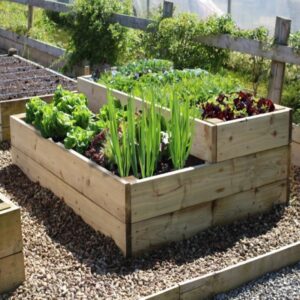 On the business side of agriculture — known as agribusiness — there are plenty positions ready for the taking, with jobs ranging in salary, educational requirements and duties.
On the business side of agriculture — known as agribusiness — there are plenty positions ready for the taking, with jobs ranging in salary, educational requirements and duties.
“It is incredibly diverse and dynamic and there’s a whole lot more jobs than people realize,” said Ferron Havens, CEO of Wisconsin AgriBusiness Council.
Careers in agribusiness fall in advertising, marketing, lending, accounting, tax services, brokering, insurance and beyond. Rather than participating in the production side of agriculture, agribusiness workers aid in financing and ensuring the smooth management of business operations.
“You don’t have to be a farmer,” Havens said. “We don’t need a farmer.”
Some companies, such as Badgerland Financial, headquartered in Praire du Sac, are entirely devoted to agricultural finance. Such companies provide fiscal services — such as appraisals, accounting, loans, and insurance for crops, dairy and livestock — specifically for farmers and agriculture businesses.
In general, most of the positions at Badgerland require a bachelor’s degree, said Rochelle Schnadt, marketing specialist at Badgerland.
“Those are skills a lot of people have, but a lot of people don’t think to apply them to agribusiness or agriculture,” Schandt said.”
11 Most Profitable Agricultural Business Ideas for Young …
“If you are looking to for opportunities in the agriculture industry, the most profitable agricultural business ideas for young entrepreneurs are some of the best options to choose from! Traditional agriculture might not sound too appealing to the youngsters of today, but the modern agriculture has diversified into many areas which make for lucrative avenues that just might be their thing. And, contrary to popular belief agriculture is one of the most remunerative business which can also be a glamorous one.
For starters the investment costs are generally low, and the payouts are decent. While, with organic farming coming into vogue, the opportunities have grown manifold. Agriculture might actually prove to be a way of life, away from the cut-throat competition and stressful corporate life, for the driven young Turks who aren’t afraid to tread the offbeat path.”
100 Agribusiness Ideas for 2016 – Worry Free Worker
Source – http://www.worryfreeworker.com/100-agribusiness-ideas-2016/#sthash.Vy0RyIoj.dpbs
“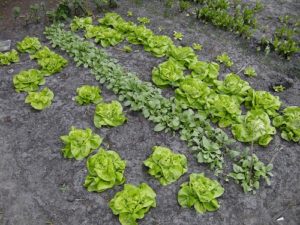 Now the important question: When it comes to agribusiness ideas, what are the best investment choices available? After careful consideration and analysis of all the agribusiness ideas available in the country, the following are the best, practical ones that you should consider investing in:
Now the important question: When it comes to agribusiness ideas, what are the best investment choices available? After careful consideration and analysis of all the agribusiness ideas available in the country, the following are the best, practical ones that you should consider investing in:
1. Invest in Cassava. Cassava is the most important and regular staple food for Africans. The market for starch in Nigeria and other neighboring countries in Africa is huge. But the lack of quality cassava processing facilities within the country is a huge business opportunity that you can take advantage of.
2. Soya bean and soya-related products are also in high demand in Nigeria. Soya-based foods, edible oil, and animal feeds can be your source of agribusiness venture. It’s in high demand and promises greater ROI. This is a one of the very good agribusiness ideas that isn’t being exploited
3. You can also invest in sorghum, which has become a very important industrial and household crop. This is a one of the very good agribusiness ideas that isn’t being exploited
4. If you have access to high capital, then opening a fruit juice concentrate facility in Nigeria can also be a very interesting agribusiness option. As per surveys, nearly 90% of the fruit juice concentrates are imported from foreign countries to manufacture fruit juices in Nigeria. Can you imagine the profit margin you will enjoy if you have your fruit juice concentrate facility within the country? Just imagine the tremendous demand you’ll have to meet!
5. Food processing and storage is also one of the good agribusiness ideas. Most of the food produced in Nigeria end up as waste because of lack of storage facilities. This is a one of the very good agribusiness ideas that isn’t being exploited”
OK, if you read any of our quotes here, or better yet you clicked and went to read these actual articles, you can’t really believe that farming and agri-business is boring – right!
This just scratches the surface of the options you have if you are a farmer or want to be one!
OK, but your scared! You need help to make a change or make a decision! I know we all have feelings like that. So, let us help. We have just the right “medicine” for you.
For a limited time, you can join our new World-Changing Community in Ecolonomic Agriculture – the Ecolonomic Action Team. Right now (Summer 2016) it is FREE to join. If you read this much later, or if you read it and wait to get in FREE now, it may end up costing you thousands of dollars. You should check it out by clicking here. Do it Now! This is a community of coaches, teachers, mentors, farmers, and want-a-be farmers who are working together to make this planet better through farming! We will help you make a decision to not be a Boring farmer. You are going to be an EXCITING farmer. You are going to change the world for the good and make the planet better. Go ahead and click here now to find out how.
You can also schedule a FREE brief call with us to see if we could help you become and exciting farmer. Just go to www.talkwithwayne.com and schedule a time that works for you. Don’t be shy. We will not bite or yell or be judgemental – just friendly and maybe even helpful.
Finally, if this was helpful for you please click on one or more of the social share buttons and tell your community about us and this article, and if you are up to it, leave us a comment below. Thanks for hanging with us!



